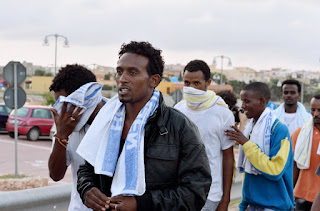There are lessons, African countries can draw from Botswana: immigrants or refugees to any country need to be targeted if HIV Programming were to be effective and successful.
In a study by Daniel J Escudero et al ( 2019), they found that Botswana has the highest level of HIV viral suppression globally, yet HIV incidence remains > 1% per year in adults aged 15 to 49.
"Although causes of this continued elevated incidence have been postulated, a firm understanding remains elusive, especially in the presence of a highly successful HIV treatment programme in Botswana.
Although Botswana provides free antiretroviral therapy (ART) for all citizens living with HIV through its national HIV programme, the first free national ART programme in sub‐Saharan Africa, non‐citizen immigrants (documented/undocumented) are currently ineligible for treatment within the national programme. Documented refugees living with HIV in camps do have free access to ART as long as they remain within the confines of the camp. Private HIV treatment is available, but remains prohibitively expensive for many non‐citizens. In addition to gaps in treatment coverage among men and young people, the lack of free treatment for non‐citizens may contribute to elevated HIV incidence in Botswana, as suggested by research in other settings. There is precedent for providing government‐sponsored HIV treatment to non‐citizens in Botswana. In 2014, a court ruling found that denying non‐citizens in prison access to ART violated their right to receive basic health services, as guaranteed by the Botswana Constitution.
They concluded by asserting that “substantial research is needed to inform potential expansions in non‐citizen testing and treatment coverage. Data may be needed prior to significant policy changes since Botswana already self‐funds at least two‐thirds of its HIV response, and further strain on the country's programme capacity may be detrimental without increased donor input. This research should be nationally‐representative and address the extent of disease burden in the migrant population, and the population‐level benefits of viral suppression in vulnerable migrants. Policy decisions should also consider how to ensure undocumented non‐citizens may share in the benefit of treatment expansion. Preliminary review of these three important questions confirms that the HIV epidemic in this vulnerable population remains largely hidden, and its impact on the overall HIV epidemic in Botswana cannot be known without further study. Furthermore, the impact that expanded coverage may have on overall HIV incidence will require even further investigation into long‐term HIV treatment outcomes and antiretroviral resistance among immigrants, as well as patterns of sexual mixing between migrant and citizen communities.”











No comments:
Post a Comment